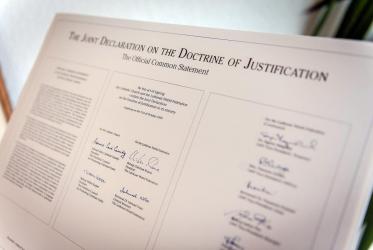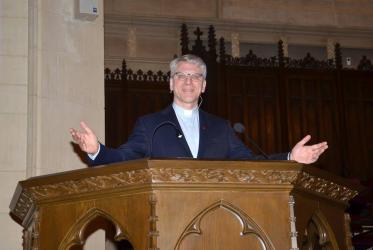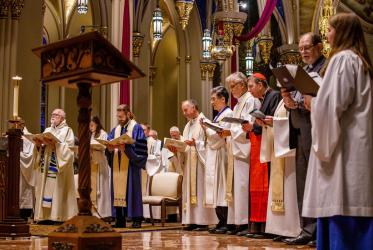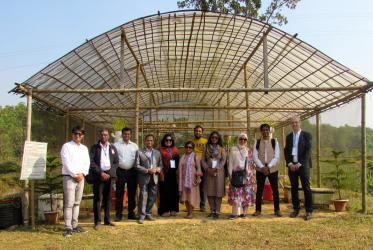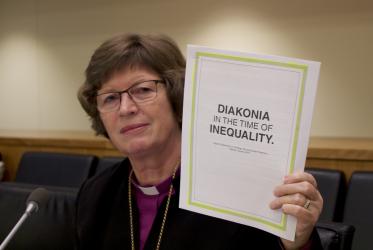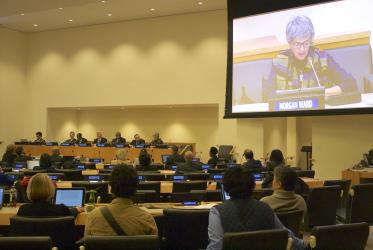Displaying 121 - 140 of 293
24 May 2019
Peacemakers at work in Sri Lanka
29 April 2019
WCC condemns massacre of farmers in Philippines
12 April 2019
WCC general secretary: “We believe in God’s love”
31 March 2019
Churches called to “break new ground” in gender justice
28 March 2019
Turning mercy and compassion into action
04 March 2019
Thursdays in Black: sharing support, transforming lives
21 February 2019
Workshop in Bangladesh links climate, economic justice
07 February 2019
Sustainable resourcing for sustainable development
05 February 2019





